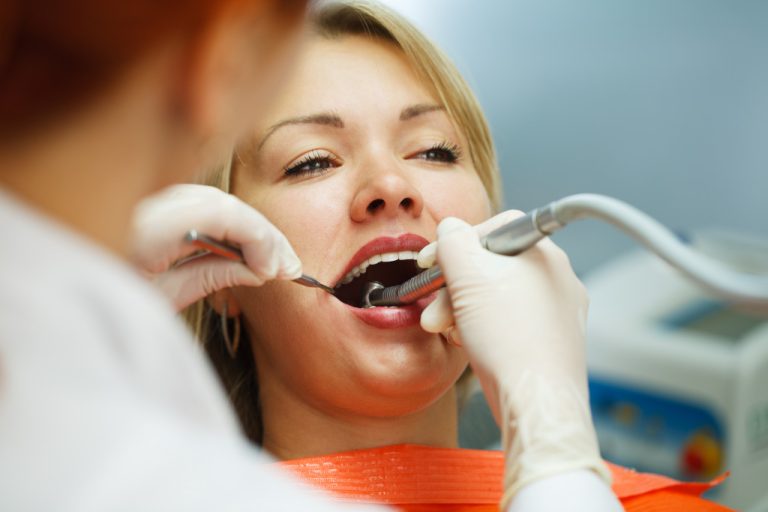Maintaining dental health is essential not only for aesthetic reasons but for health reasons as well. According to the Centers for Disease Control and Prevention, “Dental caries (cavities) are the most common chronic disease of childhood in the United States.” In fact, “More than 25% of children aged 2-5 years have at least one untreated decayed tooth surface (cavity), and over 50% of children aged 6-11 years have at least one untreated decayed tooth surface.”
The good news is that this problem is preventable with proper dental care. In addition to brushing and flossing daily, seeing a dentist regularly for checkups and cleanings is essential. The American Dental Association recommends visiting the dentist every six months.
There are many other reasons to maintain good dental health. Cavities can lead to more severe problems, such as infection and tooth loss. Poor dental health can also affect overall health, causing heart disease and stroke problems.
Maintaining good dental health is essential for both children and adults. Following the simple steps above, everyone can keep their teeth healthy and avoid costly dental procedures. However, there might be a few seemingly harmless dental issues you’re overlooking. Below are three dental problems that may seem minor but can lead to more severe consequences if left untreated.
Dental Erosion
Dental erosion is the loss of tooth enamel, the hard outer layer of the tooth. Enamel protects the tooth’s inner layers from bacteria and other substances that can cause decay. Once enamel is gone, it cannot get replaced.
Dental erosion can happen due to many things, including acidic foods and drinks, GERD, dry mouth, and teeth grinding. Symptoms include sensitivity to hot and cold temperatures, pain when eating or drinking, and visible pits in the teeth.
If you think you might have dental erosion, see your dentist as soon as possible. Dental erosion is a preventable problem, and catching it is critical. The dentist can recommend ways to protect your teeth from further damage, such as using toothpaste for sensitive teeth or wearing a nightguard if you grind your teeth.
Cavities
Cavities are tiny holes in the teeth that form when tooth enamel breaks down. Bacteria and other substances then get into the holes and cause decay. Cavities are one of the most common dental problems, and they can happen to anyone at any age.
The best way to avoid cavities is to practice good oral hygiene, such as brushing twice daily and flossing daily. You can also perform home remedies, especially when trying to prevent it. See your dentist regularly for checkups and cleanings, and have cavities filled as soon as possible.
Ignoring cavities can lead to more severe problems, such as tooth loss and infection. If you think you might have a cavity, see your dentist right away.
Jaw Misalignment
Jaw misalignment, also called malocclusion, is a common dental problem. It occurs when the upper and lower jaws are not aligned properly. It can cause the teeth to be crooked or crowded.
Most people suffer through misaligned jaws without realizing it. However, some people experience pain or difficulty chewing and speaking. Jaw misalignment can also cause headaches and TMJ problems.
If you think you might have a jaw misalignment, see your dentist or orthodontist. They will be able to diagnose the problem and recommend treatment options, such as braces or jaw surgery.
Ignoring a misaligned jaw can lead to more severe problems, such as teeth grinding, temporomandibular joint disorder (TMJ), and even arthritis.
Headgear might usually apply in this situation, but you might want to try a Herbst orthodontic appliance. It can correct your bite or align your teeth and jaws without surgery. Headgears are often a nuisance, making the device more convenient for daily life.
Wisdom Teeth
Wisdom teeth are part of the molar set, which most people can get in their late teens or early twenties. Wisdom teeth can be problematic if they come crooked, misaligned, or impacted (stuck under the gums).

If wisdom teeth are not causing problems, they can be left alone. However, they will need to get removed if they are impacted or causing pain. Wisdom teeth removal is a standard procedure, and most people recover quickly.
While wisdom teeth removal is typically a routine procedure, there are some risks involved. These include infection, damage to other teeth, and nerve damage. If you consider removing your wisdom teeth, talk to your dentist first to weigh the risks and benefits.
Stay Dentally Healthy Today!
Dental problems seem minor but can lead to more severe issues if left untreated. If you think you might have a dental problem, see your dentist as soon as possible. Taking care of your teeth today will help you avoid more severe problems in the future!

